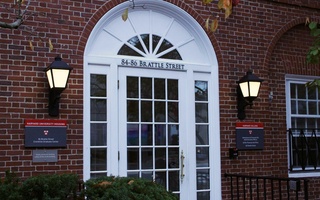Though Harvard administrators rejoiced after the Supreme Court upheld race-conscious admissions policies at the University of Texas, it is unclear whether the decision will similarly apply to Harvard as it fights to protect its admissions policies in court.
A lawsuit against Harvard, brought forth in 2014 by Students for Fair Admissions—an anti-affirmative action group—alleges that the University’s admission process discriminates against Asian American applicants to maintain implicit racial “quotas.”
Thus far, the process has progressed slowly. Last year, Harvard asked to put the lawsuit on hold pending the Supreme Court ruling on a similar case, Fisher vs. University of Texas at Austin. In the case, a white woman who was denied admission to the University of Texas at Austin sued the university, alleging the school discriminated against her based on her race.
On Thursday, the Supreme Court upheld the school’s affirmative action policies, but the ruling limits the potential for sweeping precedents in affirmative action litigation and may not necessarily provide definitive guidance for Harvard. {shortcode-b84c791d0184b50d1afb244cad2b2157bf995882}
Writing that the University of Texas’s admissions program is to be considered “sui generis,” or “of its own kind,” Justice Anthony M. Kennedy noted in the majority opinion that Texas’s system represents an anomaly among race-conscious admissions programs because, at the time, it granted automatic admission to the top 10 percent of graduating high school students in Texas (applicants for the class entering in fall 2017 must be in the top seven percent). Today, under the plan, the university must make a “good faith” effort to fill up to 75 percent of seats the university’s freshman class, while others are filled by students selected using a holistic admissions criteria common among American universities—and one that factors in race.
“The fact that this case has been litigated on a somewhat artificial basis, furthermore, may limit its value for prospective guidance,” Kennedy wrote.
Both parties in the Harvard case, meanwhile, did await guidance from Fisher’s outcome. In April, both parties agreed to draft letters once Fisher’s decision was released, detailing the ways they believed the Supreme Court decision would affect the ongoing litigation. They are expected to meet again sometime in late July.
In the opinion, Kennedy, referencing University of Texas, wrote that they have an “ongoing obligation to engage in constant deliberation and continued reflection” with regard to their admissions policies. To make their race-sensitive admissions policies defensible in court, schools must prove that affirmative action is critical to their “compelling interests.” In the case of the University of Texas, those compelling interests involved fostering diversity on campus—a goal that Harvard too has undertaken with its outreach efforts to minority students.
A lower court could strike down a school’s affirmative action policy if it finds that a university is neglecting its responsibility to review and refine its admissions policies, or if a university fails to prove that there are not alternatives to accomplishing its goal of creating a diverse campus.—Staff writer Brandon J. Dixon can be reached at brandon.dixon@thecrimson.com. Follow him on Twitter @BrandonJoDixon.Read more in News
Harvard to Offer American Sign Language Course in FallRecommended Articles
-
 Scalia’s Death Could Affect Affirmative Action Lawsuits
Scalia’s Death Could Affect Affirmative Action Lawsuits -
 High School Students File for Amicus Status in Harvard Admissions Lawsuit
High School Students File for Amicus Status in Harvard Admissions Lawsuit -
Harvard Should Vigorously Defend Affirmative ActionWhile we hope that Harvard complies with its legal obligations in this investigation, we also expect the University to make a compelling case for how affirmative action positively serves the institution.
-
 An Inflection Point: High Stakes as Harvard Admissions Trial Approaches
An Inflection Point: High Stakes as Harvard Admissions Trial Approaches -
 Kavanaugh’s Nomination May Jeopardize Affirmative Action, Experts Say
Kavanaugh’s Nomination May Jeopardize Affirmative Action, Experts Say













